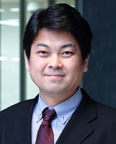Topics
2025/03/14 New stage website launchedNew!
We have launched our new stage website. [ LINK ]
* Please refresh your browser when viewing the site.
2023/08/02 Launch of NEDO development project by Re-Global membersNew!
Three member companies participating in Re-global (JERA Co., Ltd., Nippon Shokubai Co., Ltd., Chiyoda Corporation) have been selected for the NEDO project and have started development.(Research)
2023/07/01 Government of South Australia joins REglobal membershipNew!
Government of South Australia(Invest SA, Department for Trade and Investment) joins our membership. We will continue to strengthen our partnerships.
2023/6/9,10 Exhibits on UTokyo Komaba Research Campus Open 2023
REglobal introduced the research and demonstrates the power supply from a hydrogen fuel cell vehicle.
A concert by jazz pianist Sachiko Nakajimawas held in collaboration with the Advanced Education Outreach Lab (AEO).

2023/07/21 The 4th annual meeting in 2023
The 4th annual meeting in 2023 was held in a hybrid format.
2023/06/12 The 3rd annual meeting in 2023
The 3rd annual meeting in 2023 was held in a hybrid format.
2023/05/12 The 2nd annual meeting in 2023
The 2nd annual meeting in 2023 was held in a hybrid format.
2023/04/10 The 1st annual meeting in 2023
The 1st annual meeting in 2023 was held in a hybrid format.
2022/12/23 The 6th annual meeting in 2022
The 6th annual meeting in 2022 was held in a hybrid format.
2022/11/28 The 5th annual meeting in 2022
The 5th annual meeting in 2022 was held in a hybrid format.
2022/9/30 The 4th annual meeting in 2022
The 4th annual meeting and the steering committee in 2022 were held in a hybrid format.
2022/7/25 The 3rd annual meeting in 2022
The 3rd annual meeting in 2022 was held online.
2022/6/10,11 Exhibits on UTokyo Komaba Research Campus Open House
REglobal introduced the research and demonstrates the power supply from a hydrogen fuel cell vehicle.
https://2022.komaba-oh.jp/event/3482
A concert by jazz pianist Sachiko Nakajima was held in collaboration with the Advanced Education Outreach Lab (AEO).
2022/5/15 The 2nd annual meeting in 2022
The 2nd annual meeting in 2022 was held online.
[Lecturer]Mr. Qiu Yizheng (SHANGHAI DRAGON FLY ECO TECH CO., LTD,Overseas Environmental Cooperation Center, Japan)
[Title]2021 Trends in China's hydrogen energy industry
2022/4/18 The 1st annual meeting in 2022
The 1st annual meeting in 2022 was held online.
2020/11/24 Web talks with Minister Brenni of Queensland for renewable energy and hydrogen
Professor Sugiyama discussed the possibility of collaboration with Japan on expanding the introduction of renewable energy in Queensland. (Related page: [Collaboration])
2020/11/12 The 6th study session (Prof. Mitsuo Yamamoto: Graduate School of Agricultural and Life Sciences, The University of Tokyo)
[Lecturer] Prof. Mitsuo Yamamoto (Associate Professor, Graduate School of Agricultural and Life Sciences, The University of Tokyo)
[Title] "Coastal ecosystem conservation and global warming issues"
2020/11/3 Hikaru Kobayashi, RCAST Advisor Received The Order of the Sacred Treasure, Gold and Silver Star
The autumn medal was announced, and Hikaru Kobayashi, RCAST Advisor, received The Order of the Sacred Treasure, Gold and Silver Star.
(Related page: RCAST Advisor Hikaru Kobayashi's Room - News)
2020/9/30 Environmental Report 2020
An article introducing REglobal has been published in "Environmental Report 2020" of the University of Tokyo.
https://www.u-tokyo.ac.jp/content/400146657.pdf
(P.18 "Challenge to decarbonization by intercontinental transportation of overseas renewable energy resources")
2020/9/3 The 5th study session (Mr. Yasuhiro Muroishi: the Ministry of the Environment)
The 5th study session in 2020 was held on Webinar.
[Lecturer]
(1) Mr. Yasuhiro Muroishi (the Head of the Fukushima Regional Environment Office, Ministry of the Environment)
(2) Prof. Satoshi Ohara (Project Associate Professor, RCAST, The University of Tokyo)
[Title]
(1) "Looking back on the social and policy issues of past domestic bioethanol projects"
(2) "Hydrogen society from the failure of bioethanol"
2020/8/4 The 4th study session (Mr. Kazutaka Kuroda: The Japan Research Institute, Limited)
The 4th study session in 2020 was held on Webinar.
[Lecturer] Mr. Kazutaka Kuroda (Specialist, The Japan Research Institute, Limited)
[Title] "Irreversible trends in green finance"
2020/7/17 The 3rd study session (Dr. Tatsuo Kobayashi: Japan Center for Economic Research / Mr. Go Hibino: National Institute for Environmental Studies)
The 3rd study session in 2020 was held on Webinar.
[Lecturer]
Dr. Tatsuo Kobayashi (Principal Economist, Japan Center for Economic Research)
Mr. Go Hibino (Research Collaboration Coordinator in Center for Social and Environmental Systems Research, National Institute for Environmental Studies)
[Title] "Is it possible to change the future economy in terms of economic forecasting models?"
2020/7/3 The 2nd study session (Prof. Yasunori Kikuchi: Institute for Future Initiatives, The University of Tokyo)
The 2nd study session in 2020 was held on Webinar.
[Lecturer] Prof. Yasunori Kikuchi (Associate Professor, Institute for Future Initiatives, The University of Tokyo)
[Title] "Comprehensive Regional Implementation Model Leading the Construction of Sustainable Energy Systems"
2020/6/19 The 1st study session (Prof. Hikaru Kobayashi: RCAST, The University of Tokyo (Former Administrative Vice-Minister of the Ministry of the Environment)
The 1st study session in 2020 was held on Webinar. (230 participants)
[Lecturer] Prof. Hikaru Kobayashi (Former Administrative Vice-Minister of the Ministry of the Environment, Current RCAST Advisor of The University of Tokyo)
[Title] "What is the motor for social implementation of environmental measures?"
2019/3/15 Press release
Social Cooperation Research Unit "A Global Network of Renewable Fuels (RE-Global)", jointly with JXTG Energy Co., Ltd., Chiyoda Corporation, and Queensland University of Technology, produced organic hydride (*) at low cost in Australia and extracted hydrogen in Japan. The world's first technology verification was successful and a press release was made.
Press release Related articles
* A kind of substance that can store and transport hydrogen, and it is easy to handle at room temperature and pressure.
2019/2/1 The first plenary session and the opening ceremony were held
The first plenary session and the opening ceremony were held and a press release was made.
2018/12/1 "A Global Network of Renewable Fuels" has been established
Research Center for Advanced Science and Technology (RCAST), The University of Tokyo, has established a Social Cooperation Research Unit, "A Global Network of Renewable Fuels".

